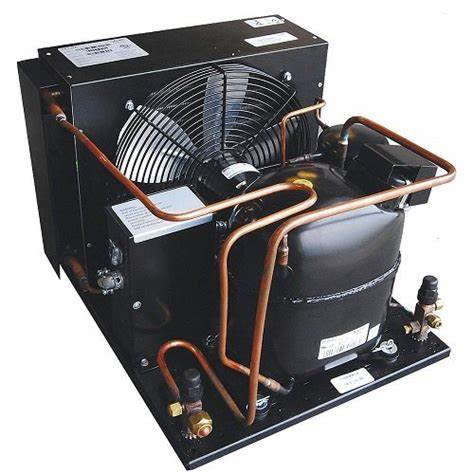In the realm of climate control, the compressor might not always capture the limelight like other HVAC components, yet it establishes its importance through its indispensable role in cooling and heating systems. This vital piece of equipment stands out for its ability to efficiently manage the refrigeration cycle, marking its territory as an essential element in the HVAC ecosystem. The unique function of the compressor elevates it within the hierarchy of HVAC components, offering a specialized experience that underscores its necessity.
Among the types of compressors found in HVAC systems, we find Reciprocating, Rotary, and Scroll compressors, each celebrated for their unique operational methods. Single-stage and two-stage compressors also make their mark, providing options that range from standard efficiency to enhanced performance for varying climate control needs. Diving deeper, each compressor type unveils its own palette of operational dynamics, energy efficiency levels, suitability for different settings, and maintenance requirements.
The subsequent sections will delve into these facets in greater depth, enriching our comprehension of why the compressor is truly the heart of any HVAC system, and how it continues to ensure our environments remain precisely climate-controlled.
What is a Compressor in HVAC?
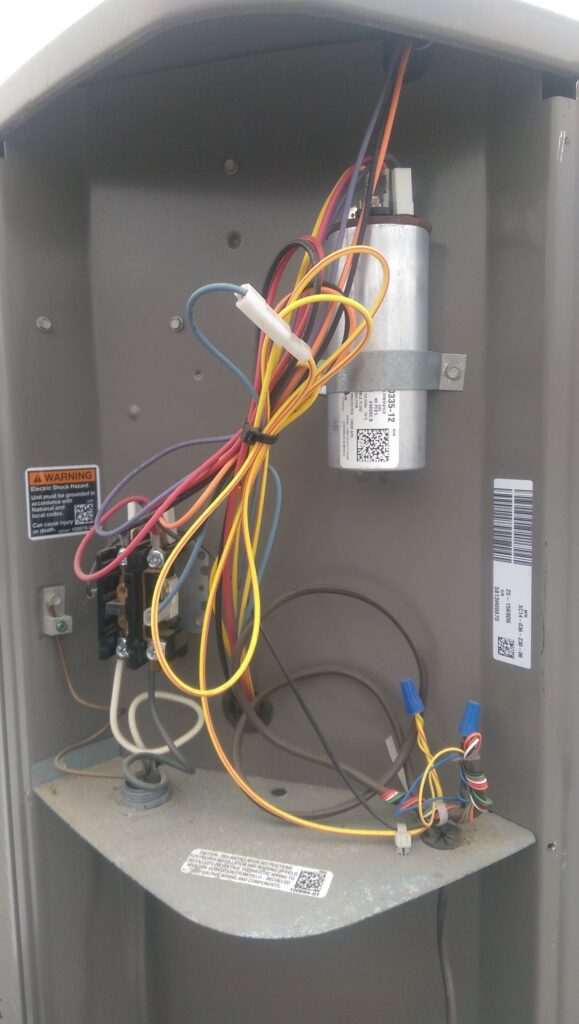
A compressor in HVAC is a mechanical device that increases the pressure of a gas by reducing its volume, essential for the refrigeration and air conditioning process
A compressor in an HVAC system acts as the core component that powers the refrigeration and air conditioning cycle. It works by increasing the pressure of a gas (typically refrigerant), which in turn reduces its volume. This process is not just a minor step but a crucial action that enables the HVAC system to extract heat from indoor spaces and expel it outdoors, effectively cooling the air inside.
The role of the compressor is so central that the overall efficiency and effectiveness of the cooling system hinge on its performance. By mastering the manipulation of gas pressure and volume, the compressor ensures our living and working environments remain comfortable, underscoring its indispensable role in climate control technology.
How does a compressor work in an HVAC system?
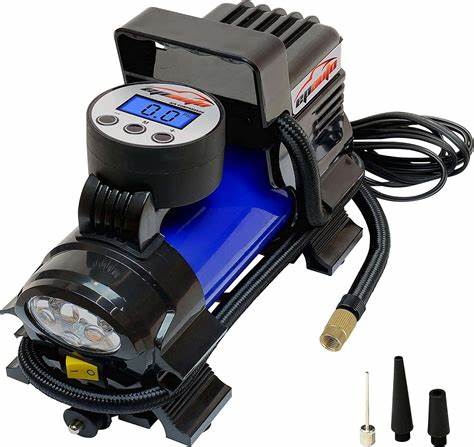
The compressor in an HVAC system initiates its crucial role by compressing refrigerant gas, leading to an increase in both the pressure and temperature of the gas. This process is vital as the high-pressure gas then moves towards the condenser, undergoing a cooling phase where it transforms into a liquid form. Following this transformation, the liquid refrigerant proceeds to the evaporator coil, where it is expanded and evaporated.
During this phase, the refrigerant absorbs heat from the surrounding environment, which effectively cools the air inside the space. This cycle underscores the compressor’s indispensable function in the HVAC system, showcasing its pivotal role in maintaining comfortable indoor temperatures by manipulating the refrigerant’s physical states and thermal properties.
It compresses refrigerant gas, raising its pressure and temperature
The compressor increases the pressure and temperature of the refrigerant gas, preparing it for the next phase of the cooling cycle.
The high-pressure gas moves through the condenser where it cools and condenses into a liquid
In the condenser, the gas loses heat and transforms into a liquid state, a crucial step for the refrigeration process.
The liquid refrigerant is then expanded and evaporated, absorbing heat from the environment, and cooling the air
Finally, the liquid refrigerant expands and evaporates in the evaporator coil, absorbing heat from the surrounding air, which results in cooling the environment.
Also Read: What Is Ideal Static Pressure In Hvac? Find Out Now
Why is the compressor important in HVAC systems?
The compressor is often referred to as the heart of the HVAC system, playing a crucial role in the refrigeration cycle that is central to both cooling and heating processes. It works by compressing refrigerant gas, which increases its pressure and temperature, a vital step for the effective transfer of heat. Without the compressor, the system would fail to move heat outside, making it impossible to cool indoor spaces.

Its efficiency not only impacts the system’s ability to regulate temperature but also affects overall energy consumption, underscoring its significance in ensuring comfortable and efficient indoor environments.
It is the heart of the refrigeration cycle, enabling the cooling process
The compressor acts as the core component within the refrigeration cycle, essential for activating the cooling process by efficiently managing the refrigerant’s flow and pressure.
Without it, air conditioning and refrigeration systems cannot transfer heat from inside to outside
In the absence of a compressor, HVAC systems are unable to move heat outside, crucially impairing their capacity to cool interior spaces effectively.
Types of compressors in HVAC
HVAC systems utilize a variety of compressors, each designed to meet specific operational needs and efficiency requirements. Reciprocating compressors operate with a piston mechanism, making them a common choice for residential and small commercial settings due to their adaptability and straightforward maintenance. Rotary compressors, on the other hand, use rotating rollers to compress the refrigerant, offering a compact solution for applications where space is at a premium.
Scroll compressors feature a unique design with two spiral elements that interlock, providing quiet operation and high reliability, qualities especially valued in commercial and high-demand environments. Each type of compressor brings its own set of advantages, from energy efficiency to reduced noise levels, ensuring there’s a suitable option for every HVAC application.
Reciprocating compressors use pistons driven by a crankshaft
These compressors leverage a piston-and-crankshaft design to effectively compress the refrigerant, suitable for a wide range of applications.
Rotary compressors trap and compress gas between rotating rollers
Utilizing rotating rollers, this type of compressor offers a compact and efficient method to compress gas, ideal for space-constrained environments.
Scroll compressors have two spiral elements that compress the gas
Featuring a unique spiral design, scroll compressors provide smooth, continuous compression, leading to quieter operation and enhanced durability.
Also Read: How To Clean HVAC System: A Complete Guide
Maintaining an HVAC compressor
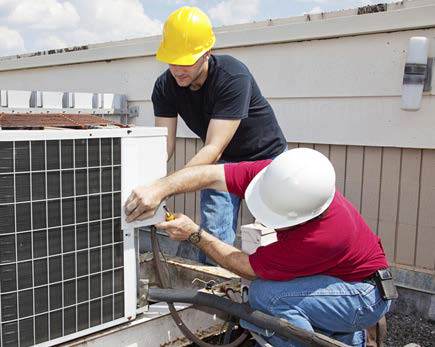
Ensuring the longevity and efficiency of an HVAC compressor requires regular maintenance. Key practices include cleaning coils and filters to promote optimal airflow, critical for the compressor’s effective operation. Inspecting for signs of wear or damage, especially in electrical connections, helps in preempting potential malfunctions.
Properly maintaining the refrigerant level is crucial; too much or too little can cause the compressor to work harder than necessary, increasing the risk of failure. Additionally, checking and replacing the compressor oil is vital for lubrication, ensuring that internal components move smoothly. Adhering to these maintenance steps can significantly extend the life of the compressor, ensuring that the HVAC system remains a reliable source of comfort.
Regularly clean coils and filters to ensure airflow
Maintaining clean coils and filters is essential for optimal airflow, which significantly enhances the compressor’s efficiency and the overall health of the HVAC system.
Inspect for signs of wear or damage, especially on electrical connections
Routine inspections for wear or damage, particularly in electrical connections, are crucial in preventing unexpected failures and ensuring the compressor’s longevity.
Ensure the refrigerant level is correct to prevent overworking the compressor
Keeping the refrigerant level balanced is key to preventing the compressor from being overworked, which can lead to increased wear and potential breakdowns.
Check and replace the compressor oil if necessary to lubricate moving parts.
Regularly checking and replacing the compressor oil ensures that all moving parts are well-lubricated, reducing friction and wear for smoother operation and extended lifespan.
Common problems with HVAC compressors
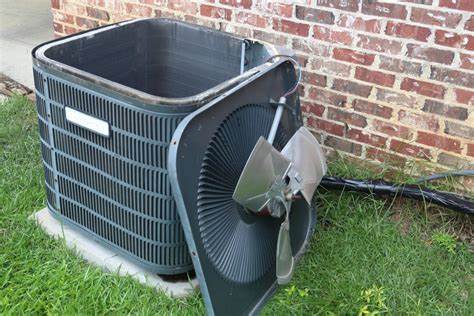
HVAC compressors can encounter several issues that impede their performance and durability. Overheating stands out as a common challenge, often resulting from inadequate ventilation or elevated ambient temperatures, which can precipitate compressor failure. Refrigerant leaks significantly undermine the system’s ability to cool efficiently, leading to increased operational costs and the risk of compressor damage.
Additionally, electrical failures such as short circuits or power surges pose a serious threat to the compressor’s functionality. Promptly identifying and rectifying these issues is essential for sustaining the HVAC system’s efficiency and prolonging its service life.
1. Overheating due to poor ventilation or high ambient temperatures
Overheating can severely impact the compressor, often resulting from inadequate ventilation or elevated temperatures. Ensuring proper airflow and cooling is essential to prevent this issue.
2. Refrigerant leaks reduce cooling capacity and cause system inefficiency
Refrigerant leaks are a critical problem, leading to a decrease in the system’s cooling capacity and overall inefficiency. Detecting and repairing leaks promptly is crucial for maintaining optimal performance.
3. Electrical failures, such as short circuits or power surges, affect the compressor’s operation
Electrical issues, including short circuits or power surges, can disrupt the compressor’s normal operation. Regular inspections and maintenance of the electrical system can help prevent these failures.
Improving compressor efficiency in HVAC
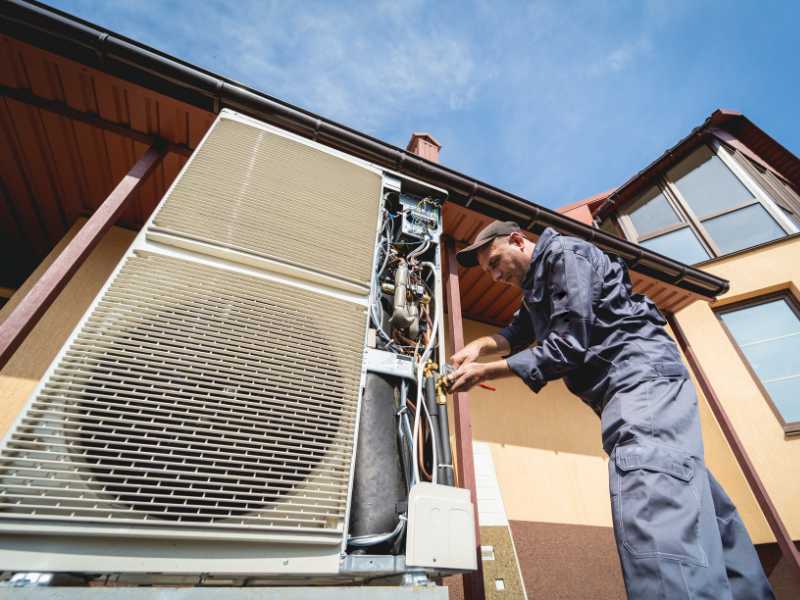
Boosting the efficiency of HVAC compressors entails strategic measures aimed at optimizing performance and reducing energy consumption. One effective approach is the installation of variable speed drives, which enable the compressor to adjust its speed according to the cooling demand, leading to significant energy savings. Regular maintenance is also pivotal, including tasks like cleaning, leak inspections, and filter replacements to maintain the system’s optimal condition.
Furthermore, investing in high-efficiency compressors that consume less energy for the same amount of cooling output can markedly enhance overall system efficiency. These initiatives not only prolong the compressor’s lifespan but also contribute to lower operational costs and a smaller environmental footprint.
Installing variable speed drives to adjust compressor speed based on demand, reducing energy consumption
Incorporating variable speed drives enables the compressor to efficiently adjust its speed according to the cooling demand, significantly cutting down on energy use.
Regular maintenance to prevent leaks and ensure optimal performance, including cleaning and replacing filters
Committing to regular maintenance tasks, such as leak prevention, system cleaning, and filter replacements, is crucial for sustaining the compressor’s optimal efficiency and performance.
Using high-efficiency compressors is designed to use less energy for the same cooling output
Adopting high-efficiency compressors, specifically engineered to consume less energy while delivering the same level of cooling, offers a greener, more efficient solution for HVAC systems.
In Summary
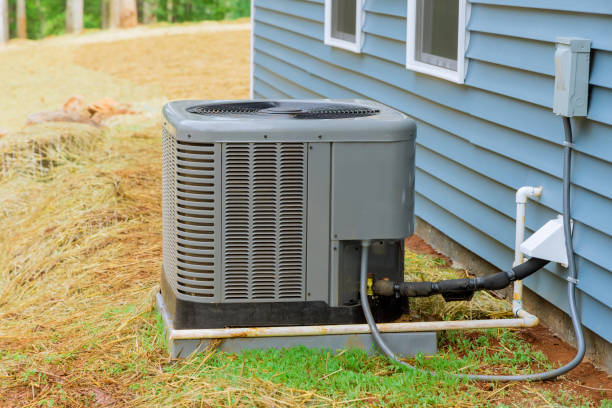
The compressor stands as the unsung hero of HVAC systems, playing a crucial role in maintaining comfortable indoor environments. As we’ve explored, this mechanical marvel is responsible for the essential task of compressing refrigerant gas and initiating the cooling cycle that makes air conditioning possible.
From the various types of compressors – reciprocating, rotary, and scroll – to the intricacies of their operation, we’ve seen how each design offers unique benefits suited to different applications. The compressor’s significance extends beyond mere functionality; it directly impacts the energy efficiency and overall performance of the entire HVAC system.
Understanding the importance of proper maintenance cannot be overstated. Regular cleaning, inspections, and timely repairs are vital in preventing common issues like overheating, refrigerant leaks, and electrical failures. These preventive measures not only extend the life of the compressor but also ensure the HVAC system operates at peak efficiency.
At Callidus Air, we understand that a well-functioning compressor is the heart of your HVAC system. Don’t let an inefficient or faulty compressor drive up your energy bills or compromise your comfort. Our expert technicians specialize in compressor maintenance, repair, and replacement for all types of HVAC systems.

